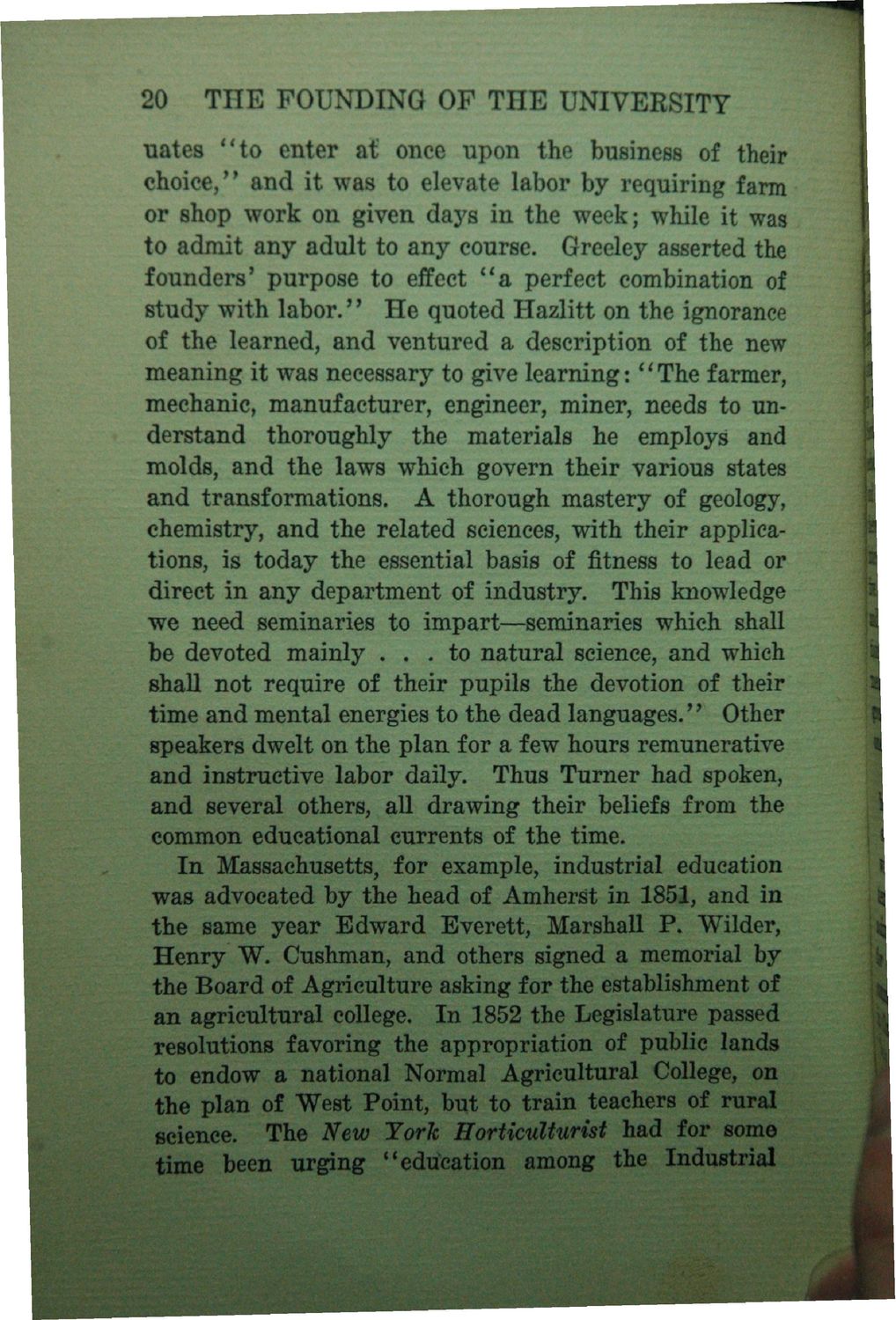| |
| |
Caption: Book - History of the University (Nevins)
This is a reduced-resolution page image for fast online browsing.

EXTRACTED TEXT FROM PAGE:
20 THE FOUNDING OF THE UNIVERSITY nates " t o enter at once npon the business of their choice,S and it was to elevate labor by requiring farm or shop work on given days in the week; while it was to admit any adult to any course. Greeley asserted the founders1 purpose to effect " a perfect combination of study with labor." He quoted Hazlitt on the ignorance of the learned, and ventured a description of the new meaning it was necessary to give learning: "The farmer, mechanic, manufacturer, engineer, miner, needs to understand thoroughly the materials he employs and molds, and the laws which govern their various states and transformations. A thorough mastery of geology, chemistry, and the related sciences, with their applications, is today the essential basis of fitness to lead or direct in any department of industry. This knowledge we need seminaries to impart—seminaries which shall be devoted mainly . . . to natural science, and which shall not require of their pupils the devotion of their time and mental energies to the dead languages.' j Other speakers dwelt on the plan for a few hours remunerative and instructive labor daily. Thus Turner had spoken, and several others, all drawing their beliefs from the common educational currents of the time. In Massachusetts, for example, industrial education was advocated by the head of Amherst in 1851, and in the same year Edward Everett, Marshall P. Wilder, Henry W. Cushman, and others signed a memorial by the Board of Agriculture asking for the establishment of an agricultural college. In 1852 the Legislature passed resolutions favoring the appropriation of public lands to endow a national Normal Agricultural College, on the plan of West Point, but to train teachers of rural science. The New York Horticulturist had for some time been urging " education among the Industrial
| |